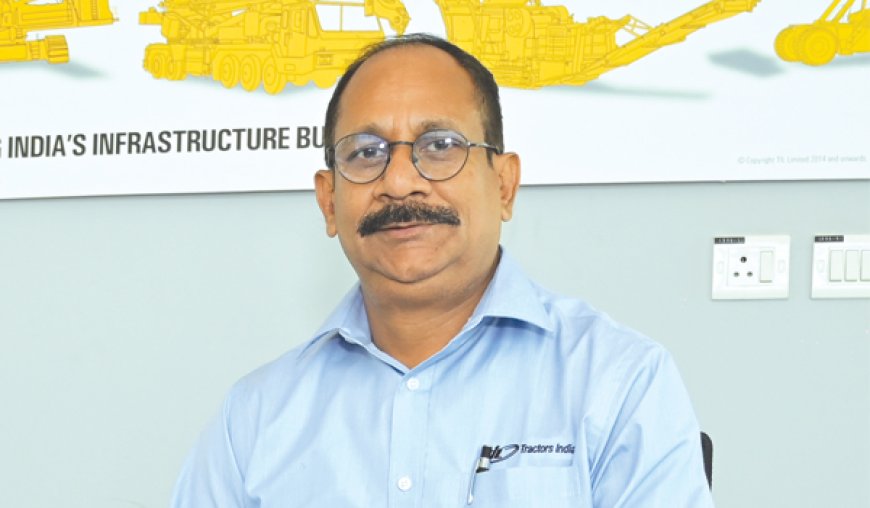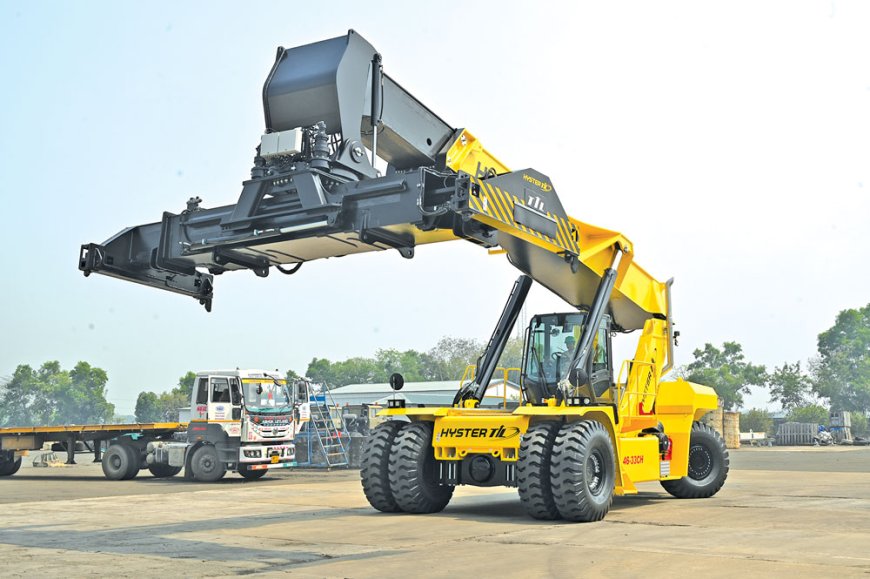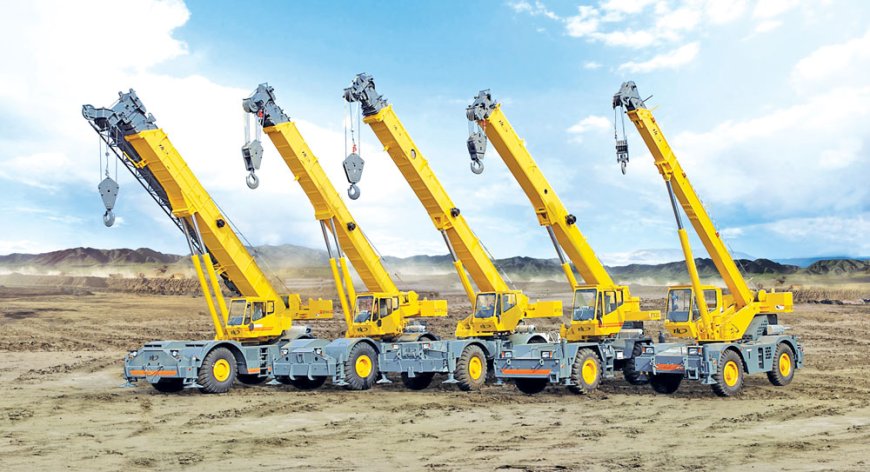TIL Limited products are known for high quality and reliability as safety is the key aspect for our business.

What emerging trends in material handling equipment are you observing? How are you addressing the increasing demand for automation and smart technologies in the sector?
We are observing several interesting emerging trends in the sector. There is a rising demand for automation and smart technologies, and we as an industry need to address them through significant investments in R&D to integrate robotics, IoT, and AI into our products going forward. This will enhance the efficiency, precision, and safety our products offer.
Ergonomics, performance and safety are our priorities as is evident in the incorporation of advanced safety features and designs of our products. We focus on safeguarding workers and minimizing accidents over catching up with trends. That said in the near future, we have plans to leverage IoT connectivity for real-time monitoring and predictive maintenance, transforming equipment performance and reducing downtime. Additionally, going forward we may explore electric and hybrid options aligning with the industry’s shift towards sustainability, offering environmentally friendly solutions while ensuring efficiency and cost-effectiveness.

What are your core products and services in Material Handling Equipment?
Since 1944, TIL Limited has been a key partner in India’s infrastructure development, offering a diverse range of material handling, lifting and port equipment including Rough Terrain Cranes, Reachstackers, Pick & Carry Cranes and Truck Mounted Cranes etc. that represents some of the best global technologies. Headquartered in Kolkata, West Bengal, TIL made the first mobile crane in India from its Kamarhatty (West Bengal) facility in 1961 which continues to manufacture world class equipment even today. The second factory at Kharagpur started in 2012 which is a state-of-the-art facility and is poised to cater to the future demand in the market. The R&D centres at both the factories are equipped with the latest software and cutting-edge technologies to enhance design excellence.
Our integrated after-sales support is designed to ensure customer satisfaction. TIL’s capability to repair and refurbish old cranes to provide a second life gives customers a wide range of options. The company maintains a world class parts warehouse for any requirements related to all of its equipment. Besides ready parts availability, TIL product support solutions include- customer support agreements, as well as maintenance & operator training for customers. Our Customer Support engineers are located across the TIL network pan India to provide prompt and effective after sales support to all our customers.
How do you ensure the reliability and safety in your range of material handling equipment?
TIL Limited products are known for high quality and reliability as safety is the key aspect for our business. This starts from designing our products keeping safety and reliability in mind, incorporating cutting-edge technologies and materials through advanced design and engineering. Additionally, we maintain stringent quality control measures throughout the manufacturing process, safety for our employees and operators and also during providing services to customers at their sites. Furthermore, we conduct extensive testing and validation to ensure our products perform consistently and safely in various operating conditions.
At TIL we believe that safety is everyone’s business –TIL, the customer, the end user and the crane operator. We provide complete training to the operator including operational dos and don’ts with high focus on safety to ensure that the careful operator becomes the greatest safety device. In addition, each of our cranes is fitted with safe load indicators (SLI). If anybody tries to lift a load beyond the rated capacity, SLIs cut the system off, thus ensuring that no towards incident takes place.

Our products stand out through several key differentiators. All our equipments have in-built advanced safety features, ergonomic designs, and cutting-edge sensors, to minimize the risk of accidents. Additionally, they are designed to deliver high-performance and reliability for a longer life than most other makes, even in demanding applications. For our cranes, the fully synchronized design of rectangular cross-section boom coupled with load bearing structure made of low alloy high tensile imported steel ensure even distribution of lifting capacity in the boom and high load bearing capacity. Similarly, our Reachstacker is the only global standard equipment in its category which is fully made in India and it offers lowest cost of ownership.
As you know, machine uptime directly affects customer profitability. So, product quality and reliability is most important. Furthermore, we offer customization options to cater to specific customer requirements, allowing our products to integrate seamlessly into their operations.
What are the biggest challenges currently facing the material handling industry and how is your company preparing to meet these challenges?
The material handling industry currently faces several significant challenges. Increasing competition from low cost Chinese players bringing tremendous price pressure, inflow of old and used machines from different parts of the world, lack of awareness and training among end-users leading to suboptimal performance and safety risks, availability of skilled manpower for specific tasks, slow adoption of world class technology and digitisation, evolving regulations and standards and availability of low-cost capital are some of the major issues the industry is facing today.
Some of the proactive steps taken from our side to overcome these challenges include investments in hiring young professionals and skill development, providing trainings to end-users on the advanced functionalities and optimal usage of our products, fostering strategic partnerships with industry leaders to leverage their expertise and stay ahead of the curve in terms of technology and innovation and finally, close monitoring of regulatory changes and adapting our products and services to ensure compliance and meet evolving customer requirements.








